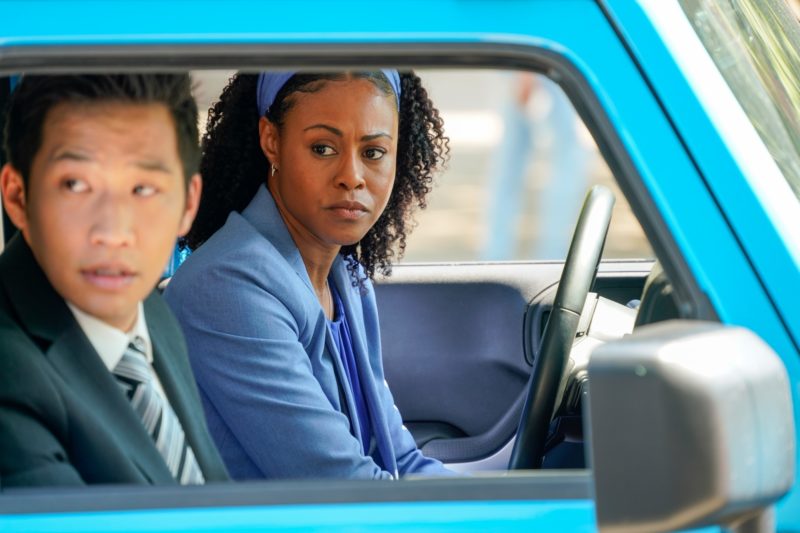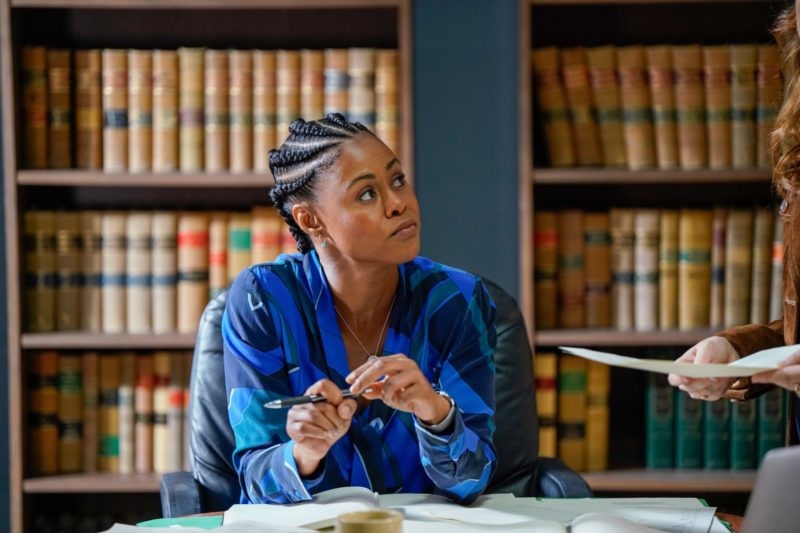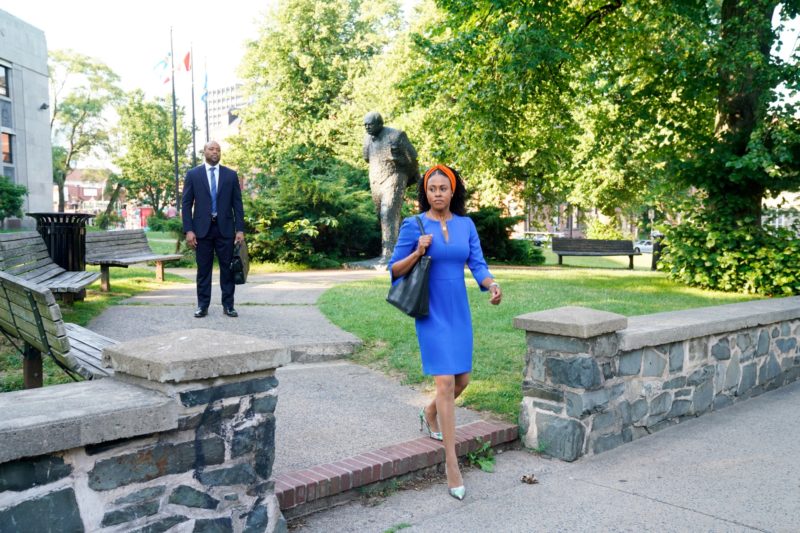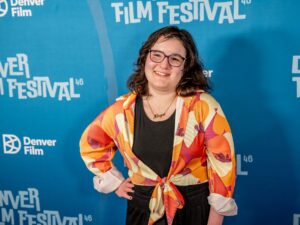Vinessa Antoine is a Canadian-born actress, who plays Marcie Diggs on CBC’s Diggstown. Her character, left her high paying job as a corporate lawyer to a Halifax Legal Aid clinic to help her community fight injustice. Antoine is no stranger to performing. She started studying ballet at the age of four with the Royal Academy of Dance in Toronto, Ontario. After graduating high school, she then went on to study dance at the acclaimed Alvin Ailey American Dance Center. After leaving the dance world, she found success on both sides of the border on shows like Being Erica, General Hospital and NCIS. She made a return to the Canadian Screen on Diggstown and she became the first black woman to be the lead of a primetime drama. We spoke to her right before the season 2 finale, airing on April 1st on CBC and amidst the uncertainty of the COVID-19 virus. Vinessa Antoine is out latest pick for #WomenInspiringWomen.

You are a pioneer as the first black woman to be the lead of a Canadian prime time drama. What does being the first mean to you? What pressures come with that?
I feel a certain sense of responsibility, to a degree, to make sure that I’m representing this character. At first, I wondered if I have to represent all black women in Canada? I quickly took that off of my plate. I’m happy that I have this opportunity to play this role, but for me but I had to take away this huge pressure to represent something. I just wanted to make sure that I was doing the character justice and represent a part of Halifax that normally doesn’t get seen.
You have said in previous interviews, that you didn’t realize the rich history that black people had in Nova Scotia, where Diggstown is set. How did that change the way that you play the character and how you see yourself as a Canadian?
Initially, my experience as a black Canadian had more of a Caribbean/West Indian history, background, culture and a way of speaking. I had an accent that I developed as a child and got rid of when I moved to the States. I revisited Nova Scotia when I was cast in the role and there is a distinct difference in the black community of Nova Scotia that had been there for many years versus immigrant kids that I grew up with who had parents from the West Indies where there is a whole other lingo and whole other Toronto lingo. Nova Scotians almost have an American twang, which I found interesting. It is such a different black history than the one that I grew up with that I didn’t even know about until I did research for this role.

Your character, Marcie Diggs, left a successful corporate legal career to work for legal aid. In a way, it mirrors your own choice to leave the security of a role on General Hospital and take a chance on this role. What attracted you to Diggstown? How much of yourself do you bring to the role of Marcie?
What really attracted me was the fact Floyd [Kane] was trying to tell a very Canadian story about a black woman, which I had never seen. We have seen different types of characters, sometimes more secondary characters or the best friend, but the story narrative wasn’t driven by a black woman. I love to play characters that are complicated and have a lot of things going on with them, and she was more similar to experiences that I had. I was like ok, let me dive into this world a little more. Before I read the scripts, it was one of those stories that I really hadn’t seen and it was long overdue.
You spent much of your early life in the dance world. Why did you decide to make the leap to acting?
I was in New York when I made that decision, and I was at Alvin Ailey. I was a late bloomer, just being so wrapped up in the ballet world. At 21, when I had already been there for four years dancing, breathing, living, bleeding dance. I was stepping into my womanhood for the first time and I wanted to express myself in a different way and I found that dance wasn’t quite cutting it. I wasn’t able to have the experiences that I wanted as an artist dancing. I just couldn’t connect them as an artist dancing. I found that through emoting when I was acting that I was able to connect with something else. I had done it for fun as a teenager, but it was always just for fun. I was never going to do it seriously. When I got to New York, I started studying and doing a lot of theatre.
Dancers and actors are judged by their appearance. How did you maintain your confidence in both worlds?
I have to be honest; I didn’t maintain it. I went back and forth a lot, and it is a continuous struggle to this day. As I get older, I think what’s happened is I just don’t care anymore, it’s inevitably what happens. When you are really young, I think that the only thing that saved me was that I had really supportive parents and I had a close-knit friendship group that were not in the business. They brought me out of that world on a daily basis to remind me of who I was. They are still my friends to this day. My best friends in the world have been my friends since I was 16. I can count them on one hand. Sometimes we talk, sometimes we don’t and we have been through ups and downs and they are quick to slap any BS out of my face [laughs]. It’s surrounding yourself with friends and family that keep it real with you and that really love you.
As women, we are often told that to be successful, you have to hold back your emotions. As a dancer and actress, emotion is a part of everything that you do. What lessons about emotional intelligence can we all learn from dance and acting?
I just texted somebody about this. That’s what we do as actors. We act out what people do in uncomfortable situations and emotions that come up. We all have different ways of doing it and it’s not just what we think or what we see on television or in the movies. That’s not necessarily how people really are. Sometimes people act differently than what we think and I am always aware when I am watching that. I’m not afraid to go there because that’s what I do, that’s what I’m called to do. If you’re not, don’t be afraid of it. It’s uncomfortable at times, but that feeling goes away. It’s like stepping into that fire of what that uncomfortable, emotional place is. It’s dangerous, but go in there and dance and play in there a little bit, it’s ok. Then, you can come out of there and you will hopefully learn something.
You have been an inspiration to Canadian hopefuls – both minorities and non-minorities alike. Who inspires you?
There are so many people that are inspiring to me. The women in my family, like my mom, my grandmother and great-grandmother – that female lineage is so strong. That also includes my aunts, my cousins. For a long time, I didn’t know where I got my strength from. For a time, I thought it was just me, and that I was a tough cookie. A few years ago, we buried my grandmother, and to see her legacy in one room for the first time and seeing all the similarities, I got it. I was thinking, gosh this is in our blood. I get it.
What is the biggest challenge to having a successful acting career in Canada?
Part of that is not untrue and it’s unfortunate but I don’t know if that’s going to change. We are going to have to see if COVID-19 will shake things up in a big way. Just like with what’s going on, we have to look in our own fridge and see what we have to make with; Canadians have to look in their own fridge and see what talent is there and make the best of that. What inevitably happens that great talent, whether they are from the music or film and television industry, they end up crossing the border so that the Americans can give us a pat on the back, the validation that we are good. It’s at that point where Canadians are like, “Yeah, that’s right, that’s our Canadian Drake.” He had been trying to get a record deal in Canada for years and everyone said no. They wouldn’t play his songs on the radio. Then, someone in America gave a shot, and now he’s one of the biggest artists in the world. I think it’s just going to be about Canadians not waiting for Americans to give validation and to call someone our own.

As a mother and actor, you are living many women’s dreams. What advice do you have for other mothers out there who think that they can’t make their own dreams happen?
It’s so hard. I don’t recommend this lifestyle [being an actress] for single moms. I coming at it from a different angle because even though I am a single mom, I have been doing this for a while. This business isn’t always the best way to raise kids because it’s so taxing on your brain and body. Keeping it 100% real, if you have it, you have it, if you don’t you don’t. I learned that over the years. It’s really, really, really hard and if you don’t have a thick skin and that love and determination for the craft, don’t bother. The amount strife is challenging and it’s difficult to wrap kids up in that if you don’t really love it.








